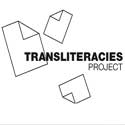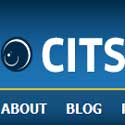| Social Computing IGERT Curriculum
[Also see sample syllabus and bibliography for SC 2.a – Social Computing Advanced Research Core Course] |
|
| Tech & Society PH.D Emphasis | Social Computing IGERT Courses (on top of Tech & Society Ph.D. Emphasis Curriculum) |
| Year 1 | |
| 1.a – Gateway Seminar for UCSB Technology & Society Ph.D. Emphasis.
Rationale: This course introduces students to a broad range of methods and topics in the study of information technology and society. It also links up students with wide selection of faculty and other students and teaches them how to collaborate across disciplines. |
SC 1.a – Social Computing Research Skills and Methods Course
Rationale: This course provides hands-on introductions and training in the research and technological skills needed to collaborate across disciplines on topics related to social computing. The course ensures that students are cross-trained in other disciplines at a level adequate to facilitate later collaboration. Major units of the course will include: introduction to social-science research methods and social-networking theory and tools; introduction to networking technology, database theory, datamining, and visualization [I need some help here!]; introduction to cultural and ethnical analysis, including contemporary approaches to human identity. |
| 1.b – Two of the four courses required for the Tech & Society Ph.D. Emphasis (1 in T&S Area 1: Culture and History; 1 in T&S Area 2: Society and Behavior)
Rationale: These courses expose students to the breadth of the topic of technology and society. Example courses from approved T&S list: Area 1: “Historicizing New Media,” “Digital Media Theory & Practices,” “Race & Gender in Cyberculture,” “Technology in U.S. History,” “Network Protocols in a Social Context” Area 2: “Mass Communication and the Individual,” “Global Organizational Communication,” “Technology & Organization,” “Literacy in the Information Age,” “Geographic Information Systems,” “Internet & Social Movements,” “Information Technology & Politics” |
SC 1.b
At least one additional core course in a student’s home department relevant to, or preparatory for, work on social computing. Rationale: These courses anchor the new student in their home program and ensure a sound basis for future work integrating their dissertation research with their social computing IGERT research. Example courses: Sociology: Soc 224: “Social Movements”; Soc 294: “The Internet and Social Movements”; Soc 294: “Methods of Internet Research” Communication: Comm 594: “Social Media and Communication” Media Arts & Technology/Humanities: “Technology and the New Sociology of Culture” Computer Science: [We need something here] |
| Year 2 | |
| 2.a
The last two of four courses required for the Tech & Society Ph.D. Emphasis (1 in T&S Area 1: Culture and History; 1 in T&S Area 2: Society and Behavior) Rationale & Example Courses: (See under 1.b above)
|
SC 2.a – Social Computing Advanced Research Core Course
Rationale: this course includes advanced readings and discussions of with units on the application of social computing (including collective action); information, communication, and media studies (including information credibility); and the development and measurement of social-computing technology. [Detailed syllabus and bibliography] |
| SC 2.b – Project Design Course
Rationale: This is a team-based project-design course in which students design and prototype a project for the purpose of exploring next-generation social, cultural, and technological issues in social computing. Students will be supervised by a faculty member experienced in project-design and -management (who will also mentor students in such professionalization topics as grant-writing, project-administration, project-budgeting, and human-studies ethics rules); and each student will also consult with an individual advisor in his or her home department to ensure that there is synergy between IGERT research and dissertation research. |
|
| Year 3 | |
|
[Outside the IGERT, students in this year focus on their dissertation prospectuses and final qualifying exams in their home departments] |
SC 3.a – Social Collaboratory Project Course
Rationale: This course brings the results of our IGERT students’ training to bear on one of the great user-bases of social computing: K-12 and undergraduates. The purpose is to help educate younger students in the nature, potential, and risks of social media and also to encourage them to pursue educational tracks that will help produce tomorrow’s social-computing designers, engineers, content-managers, scholars, critics, and others. IGERT students in this collaboratory are required to build a team-based project that interacts with K-12 and/or undergraduate students. The project will be evaluated on the basis of two criteria: ability to make society aware of the broad social, cultural, and technological implications of social media; and ability to make younger students aware of the specific training they would need to have a career in social computing in the future (i.e., a sense of the professional “fields” involved, the programs they may want to find out about, etc.). |
| Ongoing Professionalization Training | |
| Besides the mentoring specified under 2.b above, students will be required to undergo a structured series of activities intended to provide them with professionalization training. Due to space limitations, these are omitted from this preproposal, but will be included in a full proposal. These activities include: attendance at a lecture series, an annual research review, a formal mentoring arrangement, an ethics and human-subjects workshop, a public research talk, and a management/entrepreneurship workshop. The IGERT, of course, also includes the requirement that students undergo a critique of their Ph.D. prospectus and a dissertation defense (in conjunction with the requirements of a student’s disciplinary department ). | |
-
Categories
- Bluesky Innovation Competition (9)
- Events (1)
- IGERT Proposal Materials (2)
- Uncategorized (1)
-
Tags






